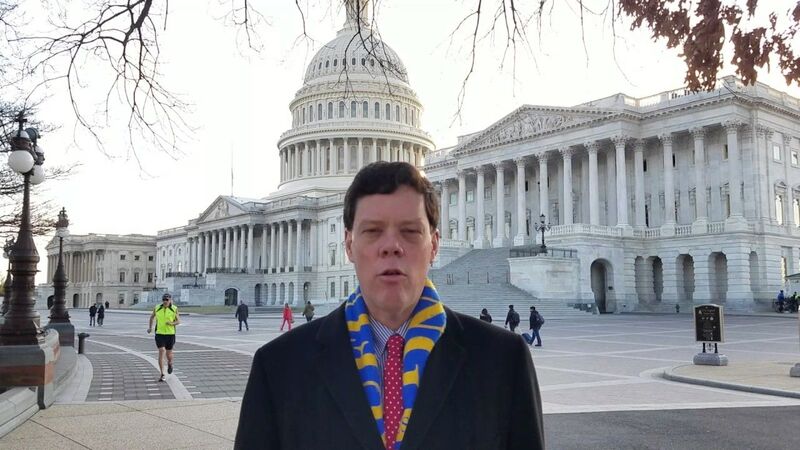As the primary election nears, I find myself worried about progressive disunity, and the threat it could help deliver a third term to Scott Walker. I am uneasy about the dynamic of the primary election, but at a deeper level about a disturbing level of self-destructive rancor coming from a small number of progressives.
The wide open gubernatorial primary, where progressive activists are divided between 7 candidates, provides a unique challenge for unifying the progressive base. As I wrote in the Cap Times last year, a galvanized grassroots army is essential to defeating Walker’s massive dirty money machine.
The catastrophic 2016 Presidential primary shows the peril of disunity. I had a front row seat as a Bernie Sanders representative on the National Democratic Platform Committee, and even successfully negotiated the inclusion of “Medicare for All” in the states. But overall the Clinton campaign failed to capture energy of the Sanders insurgency by refusing to run on the boldly progressive platform we produced together.
At a second level, I am worried about dissention within progressive ranks. It pains me to say I have witnessed from a very small number of progressives an unprecedented level of acrimony, and a willingness to judge and demonize fellow progressives over everyday disagreements, all amplified by social media.
This dissention stems in part from the anxiety produced by Trump’s dangerously racist and sexist brand of proto-fascism, and frustration that we are moving backwards on the things that matter most to progressives: racial and gender equity, eradicating poverty, establishing health care as a right, un-doing mass incarceration, preventing a climate genocide, reversing the economic decline of our rural and urban areas, the list goes on.
Although she paints things with too broad a brush, I see a troubling amount of truth in Yale Law Professor Amy Chua’s contention in her recent book that a new tribalism has taken hold across the political spectrum, expressing itself on the right as Trump’s racist nativism, and on the left as a politics of exclusion in the name of inclusion. There is also disturbing opinion research that some voters who would otherwise be open to a progressive messages feel judged and looked down upon. This comes in part from relentless Fox News and right-wing radio propaganda about so-called “political correctness,” but if we are being real it also a consequence of the way some progressives engage people outside our circles.
I believe the only way to build a progressive movement capable of achieving governing power, and generating real social and economic progress, is to ground it in liberal value of mutual respect. The history of social progress is the expansion of the circle of empathy, which began with our immediate kinship groups, and has been remarkably expanded over the centuries to be universal in scope. The story of conservatism, in contrast, is to forestall the expansion of freedom by dividing and conquering, pitting group against group, and scapegoating marginalized communities.
The great social movements that changed America--Wisconsin’s progressives insurgency in the early 20th Century, and the Civil Rights Movement--ultimately succeeded by expanding the circle of empathy to encompass a governing majority committed to breaking down systems of oppression.
The most recent example, which is especially meaningful for me as a gay man, is the battle for marriage equality, which triumphed after decades of courageous movement building by invoking the universal value of love. This historic breakthrough was possible because we appealed to what Lincoln called the “better angels of our nature.”
I am not calling for the false unity of watering down our aspirations to win one election. The great movements transformed America because they challenged the powerful in uncomfortable ways, spoke to truths the establishment sought to evade, and never compromised with injustice. But they also conducted themselves in a way that invited people in based on the aspiration that everybody means everybody.
Despite my fears, I believe there is reason for optimism. At the National Platform Committee in 2016, despite some loud and caustic voices, most representatives on both sides of the Bernie/Hillary divide treated each other with mutual respect and produced the most progressive platform in decades.
The Democratic contenders for Governor have been admirably retrained in not attacking each other, and have taken bolder progressive positions than we have seen in many years. Most support the major tenants of the 8 year platform for fundamental reform created by Citizen Action of Wisconsin members across the state.
If we can expand the circle of empathy, and begin to heal the divides that the far right has exploited to gain power, Wisconsin progressives may be on the verge of re-electing progressive champion Tammy Baldwin, sweeping Scott Walker from office, and launching the next great epoch of social and economic advance.
Robert Kraig is the Executive Director of Citizen Action of Wisconsin, a statewide grassroots organization working to advance economic, environmental, and racial justice. Find out how to get involved in Citizen Action’s democratically-led Organizing Co-ops at citizenactionwi.org
Links
Memberships
Steve is a member of LION Publishers , the Wisconsin Newspaper Association, the Menomonie Area Chamber of Commerce, the Online News Association, and the Local Media Consortium, and is active in Health Dunn Right.
He has been a computer guy most of his life but has published a political blog, a discussion website, and now Eye On Dunn County.



Add new comment